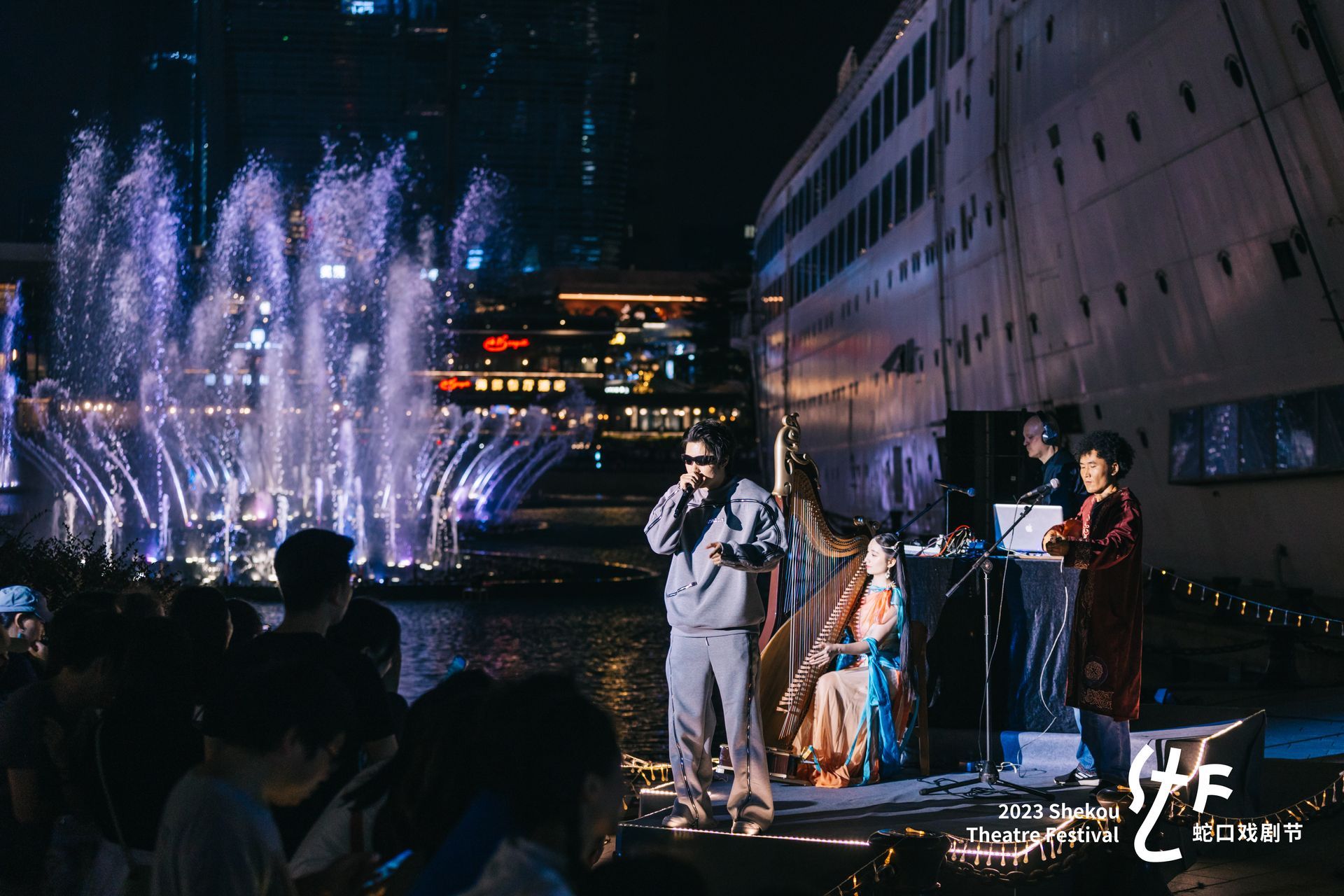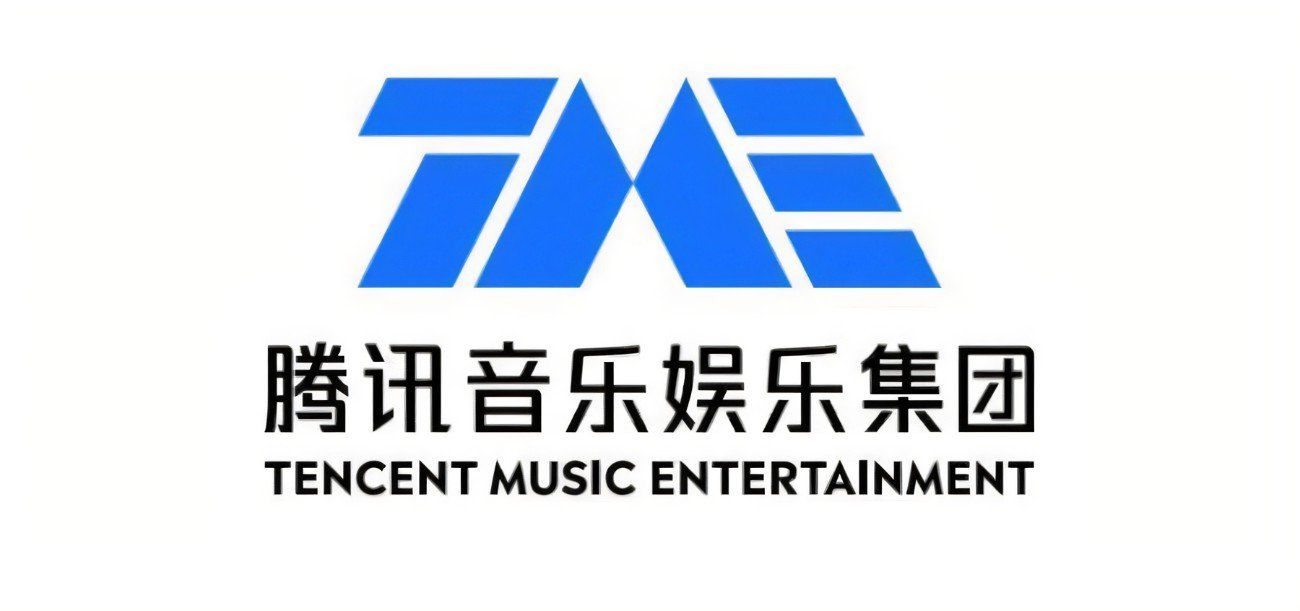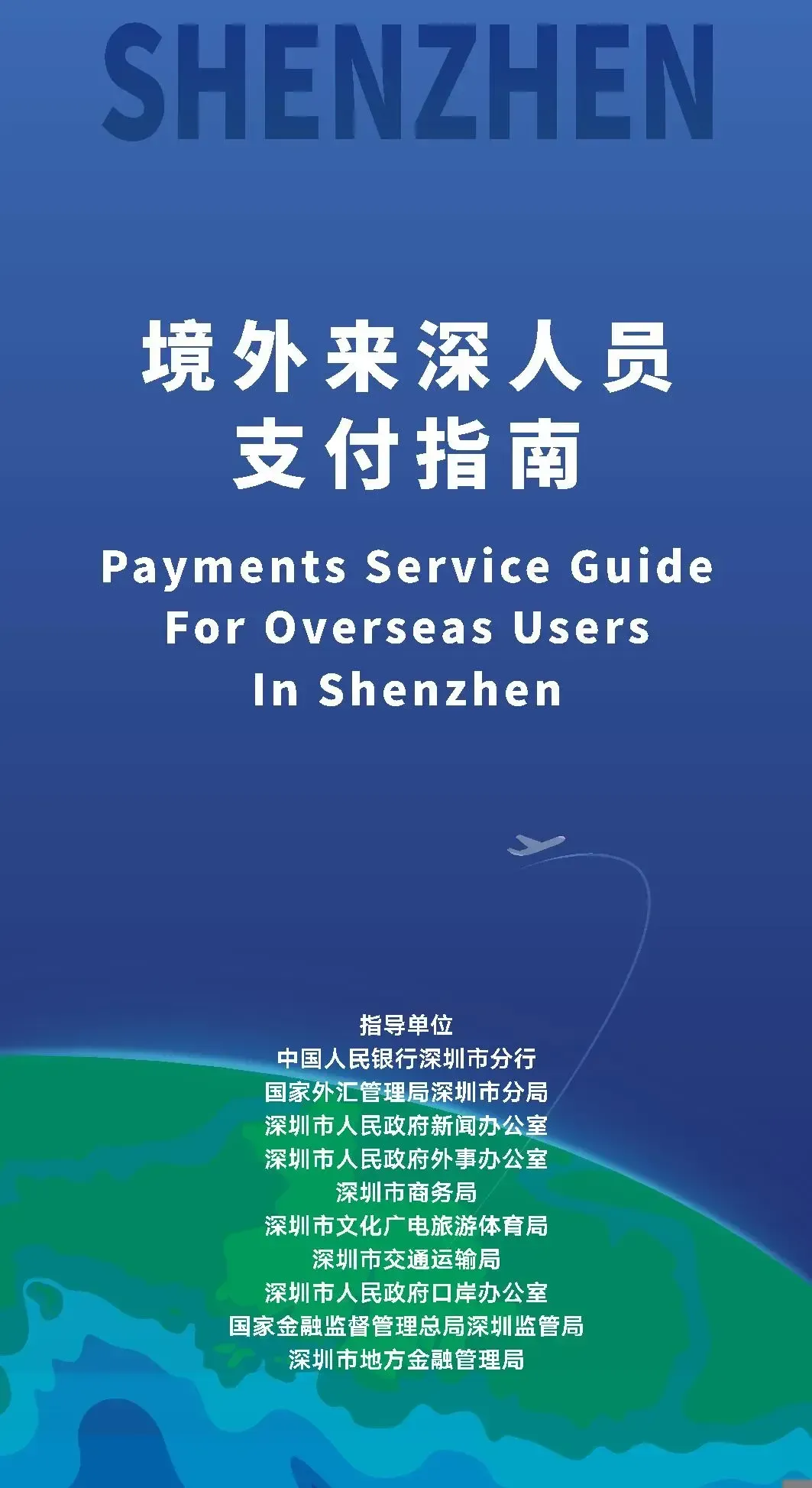China Music Market News

The Shenzhen Municipal Bureau of Culture, Media, Tourism, and Sports recently released Measures to Promote the High-Quality Development of the Cultural, Sports, and Entertainment Industries , which includes initiatives aimed at creating diverse performing arts spaces, incentivizing large-scale commercial performances, fostering entertainment agencies, and optimizing the business environment. To attract high-quality enterprises, newly listed large-scale cultural, sports, and entertainment industry companies in Shenzhen will receive a one-time reward of 100,000 yuan. Independent legal entities with annual revenues exceeding 20 million yuan will receive a one-time reward equivalent to 2% of their business income, up to a maximum of 1 million yuan. Support will be provided for renowned domestic and foreign cultural, sports, and entertainment enterprises to establish a presence in Shenzhen. Newly introduced leading domestic and foreign enterprises or affiliated institutions generating annual operating incomes exceeding 20 million yuan will be eligible for a one-time reward of up to 2 million yuan. Units that effectively plan, promote, and facilitate the introduction of these high-quality enterprises will receive a one-time payment of 100,000 yuan. Encouragement will be granted for the revitalization of traditional theaters, theme parks, park districts, cultural relics, and commercial complexes through the enhancement of performance formats, development of experiential, interactive, and immersive performing arts projects, and the establishment of innovative residency shows or experiential scenes deeply integrated with cultural tourism. New performing arts spaces meeting relevant criteria and standards, hosting over 100 shows and events in the past year with each show selling no fewer than 100 tickets, may qualify for up to 1 million yuan in subsidies based on actual performances. Private capital will receive support for the creation and introduction of commercial performance events. Events selling between 10,000 and 20,000 tickets per show will be eligible for a maximum grant of 200,000 yuan, while events selling over 20,000 tickets will qualify for a maximum grant of 250,000 yuan. The annual grant limit for the same organizer is set at 1 million yuan. Efforts will be intensified in nurturing entertainment and sports agencies, with private entities encouraged and guided to establish prominent entertainment and sports brokerage agencies domestically and internationally. Agencies achieving initial annual revenues exceeding 20 million yuan will receive a one-time reward of 1 million yuan.

In 2023, propelled by supportive policies and growing consumer interest, China's national performance market system has been evolving and improving consistently. The industry's scale is expanding continuously, leading to enhanced economic benefits. This development has been instrumental in boosting cultural and tourism consumption, especially in revitalizing and broadening consumer spending. According to the ticketing information monitoring platform of the China Performing Arts Industry Association and comprehensive calculations based on research, the overall revenue the national performance market in 2023 reached 739.94 billion yuan, a 29.30% increase compared to 2019, reaching a historical high. In the year 2023, the total number of performances held nationwide amounted to 440,600, showing a remarkable surge of 123.55% compared to 2019. The ticket revenue generated from these shows stood at 50.232 billion yuan, indicating a substantial increase of 150.65% from 2019. Moreover, the cumulative audience attendance reached 171.1364 million, reflecting a noteworthy rise of 83.01% compared to figures from 2019. In addition to revenue from ticket sales, performance operators also benefitted from other income sources, such as earnings from performance-related merchandise and ancillary sales, sponsorship proceeds, revenue from operational assets and supplementary services, as well as income generated from art education services, totaling 23.762 billion yuan. Last year, professional theaters exhibited remarkable progress. The year saw a surge in the number of performances to 97,400, a 31.09% increase compared to 2019. Box office revenue rose to 8.623 billion yuan, marking a 14.21% growth from 2019. Notably, total attendance reached 30.6423 million, reflecting a substantial 34.54% increase from 2019. The impressive growth of professional theaters in 2023 can be attributed to significant enhancements on the supply side, improvements in audience experiences, and elevated service standards. The year witnessed noticeable developments in venue and program offerings, with numerous new and refurbished professional theaters being introduced nationwide over the past three years. Moreover, the continued focus on original domestic productions and the return of internationally acclaimed artists and groups to the performance scene have played a pivotal role in driving the resurgence of various performance metrics within theaters. In 2023, there was a flourishing scene in small theaters and innovative performing arts venues. The total number of performances hit an impressive 186,900, soaring by 471.07% compared to 2019. These venues collectively raked in a hefty 48.03 billion yuan in box office revenue, marking a remarkable 463.13% surge from 2019. The audience turnout was equally astounding, reaching 24.424 million, showcasing a 250.54% spike from 2019. There were 5,600 concerts and festivals with a capacity of over 2,000 attendees, representing a 100.36% increase compared to 2019. The total ticket sales for these mid-sized and large-scale performances amounted to 201.71 billion yuan, showing a significant growth of 373.60% compared to 2019. The total attendance reached 35.5188 million, demonstrating a notable increase of 208.50% compared to 2019. In 2023, the tourism performing arts sector saw significant growth with 150,700 events held, reflecting a 72.61% surge from 2019. Ticket sales reached 16.636 billion yuan, showing a substantial 125.45% increase from 2019, while the total attendance hit 805.513 million, indicating a notable 54.14% rise compared to 2019.

GUANGZHOU, China — Cloud Village — the music streaming arm of NetEase — is pushing ahead with an initial public offering in Hong Kong after reportedly delaying it earlier this year. NetEase originally filed for the listing of Cloud Village in August. Several reports at the time said that NetEase delayed the IPO due to volatile markets. But on Tuesday, the company filed a revised prospectus with the Hong Kong stock exchange indicating that it is going ahead with the listing. There is no pricing or timing of the listing yet. Chinese technology stocks have taken a beating as Beijing introduced a slew of new regulation over the past year in areas from data privacy to anti-trust that caught many investors off guard. Cloud Village runs NetEase's music streaming business and the company says it has 185 million monthly active users. Revenue for the nine months ended Sept. 30 rose 51.5% year-on-year to 5.1 billion yuan ($799.6 million). Cloud Village's revenue comes mainly from subscriptions, advertising and when users buy virtual items on its platforms. However, the company is still deeply unprofitable as it focuses on boosting user numbers and content while battling against Tencent's rival music streaming service. "Despite a continued increase in its user base, Cloud Village may continue to incur gross and net losses and net operating cash outflow in the foreseeable future, including for the year ending December 31, 2021, due to its continued investments in content, technologies, marketing initiatives as well as research and development," the company said in a filing with the Hong Kong stock exchange.

Renowned pianist Li Yundi has reportedly been detained by Beijing police for alleged involvement in prostitution. Officers from the capital's Chaoyang district posted a statement on the police Weibo account at about 9 pm on Thursday, saying they had detained a 39-year-old man surnamed Li and a 29-year-old woman surnamed Chen. They said they had investigated and detained the pair after receiving reports about alleged prostitution in a community in the district. They said both Li and Chen had confessed to the illegal activity. Although officers did not give more details about the identities of those arrested, the Beijing Public Security Bureau posted a picture of a piano on its Weibo account and commented: "The world is indeed more than black and white, but it's important to distinguish and draw a clear line between black and white, which cannot go wrong." The post and the picture quickly went viral on Chinese social media, and netizens and media outlets, including People's Daily, soon confirmed the detained man was the world-renowned pianist, who has more than 20 million followers on Weibo. Li was born in Chongqing and was propelled to fame by winning first prize in the XIV Chopin International Piano Competition at the age of 18, becoming the youngest and the first Chinese winner in the history of the competition. Since then, he has been regarded as an international piano star and a leading exponent of Chopin's music.

Chinese-Canadian pop star Kris Wu has been formally arrested on suspicion of rape, prosecutors in Beijing said in a statement Monday. The move comes after 30-year-old Wu was first detained on July 31 by police in the Chinese capital, following an online outcry over sexual assault allegation against him in what has become the most high-profile #Metoo case in China. The allegations first emerged last month on Chinese social media platform Weibo, when a woman posting under the verified handle "Du Meizhu" alleged Wu, whose Chinese name is Wu Yifan, had sexually assaulted her while she was drunk at the pop star's home, where she said she had gone for a casting interview. The woman, a student at the Communication University of China in Beijing, said she was 17 at the time of the alleged assault. Du later alleged that several other women, including two minors, had reached out to her to share similar experiences of being lured into having sex by Wu, who is one of China's biggest stars. Wu's representatives did not respond to CNN's request for comment. The terse statement from the prosecutor's office in Beijing's Chaoyang said Wu's arrest for suspected rape was formally approved Monday, but it did not offer any details on the charges. Before he was detained, Wu had denied the allegations on his personal Weibo account. His company said it was pursuing legal action against his accuser, calling the accusations "malicious rumors." Wu, who was born in southern China but is a Canadian citizen, rose to fame as a member of popular Korean-Chinese pop group EXO, then as a solo act after he left the band in 2014. He starred in multiple movies and modeled for brands like Burberry, soon becoming one of the country's top brand ambassadors. But many of his biggest brand partners were quick to distance themselves as the rape allegations spread in July. French fashion house Louis Vuitton, Italian luxury brand Bulgari and Chinese cosmetics brand Kans were among those that suspended or severed ties completely with the star. Wu's dramatic downfall only accelerated after his detention. His once wildly popular social media accounts, including his Weibo page with more than 51 million followers, were taken down overnight. His songs were also removed from music streaming sites. On Monday evening, Wu's arrest became the top trending topic on Weibo, with most comments supporting the police action. A related Weibo hashtag has been viewed 1.6 billion times as of Tuesday morning.

In the first of a four-part series on China’s antitrust investigations into the nation’s internet and technology sectors, Xinmei Shen and Coco Feng look at the music-streaming services provided by online platforms. Parts two through four on video games, literature and ride-hailing will be published on May 29, June 12 and June 26. With an eye to rein in the power and influence of China’s Big Tech companies, Beijing dropped the hammer on e-commerce industry leader Alibaba Group Holding in April with a record US$2.8 billion fine for antitrust violations, following that up with an investigation of on-demand delivery services giant Meituan. Other major hi-tech firms are now expected to come under the government’s antitrust scrutiny. Regulators are already preparing to slap penalties on Tencent Holdings, whose dominance in online music-streaming services has been the focus of a government inquiry, according to a recent Reuters report. Shenzhen-based Tencent, which runs the world’s largest video gaming business by revenue and China’s top social media platform WeChat, also controls the country’s biggest music-streaming operation. New York-listed Tencent Music Entertainment Group (TME), in which Spotify is a principal shareholder, operates popular apps QQ Music, Kugou Music and Kuwo Music, with a combined 622 million monthly active users (MAUs) in the December quarter last year. New York-listed Tencent Music Entertainment Group’s popular streaming apps QQ Music, Kugou Music and Kuwo Music had a combined 622 million monthly active users in the fourth quarter last year. Photo: Shutterstock By comparison, closest competitor NetEase Cloud Music – operated by NetEase, China’s second-largest video games company – had about 150 million MAUs in the same period, according to estimates by QuestMobile and Deutsche Bank. Tencent could face penalties for not properly reporting past acquisitions and investments for antitrust review, which might force it to sell its Kugou and Kuwo apps, according to a Reuters report last month, citing people familiar with the matter. Antitrust authorities can order companies to dispose of equities and other assets, and conduct necessary measures to restore the firm’s status before it made an acquisition considered “a violation of concentration of undertakings” under China’s anti-monopoly law, according to Liu Xu, a researcher at the Intellectual Property and Competition Law Research Centre at Tongji University in Shanghai, in a blog post published on WeChat in January. “[China’s internet companies] grew wildly in an environment that was all about survival of the fittest, so they generally lacked awareness for compliance,” Liu said in an interview with the Post. “The best and simplest starting point [for an antitrust investigation] is to look into Tencent Music’s acquisition of China Music Corp.” In 2016, Tencent bought a majority stake in China Music Corp, which operated Kugou and Kuwo, in a deal valued at US$2.7 billion. Tencent proceeded to merge its QQ Music business with those two apps to form music-streaming giant TME, which went public in the US in 2018. At the time, the combined domestic market share of the three music-streaming apps was 71 per cent, led by Kugou’s 33.7 per cent share, according to market research firm Sootoo. New York-listed Tencent Music Entertainment Group’s three popular apps have the most number of music-streaming users in China. On top of increasing the number of Tencent’s online music-streaming users, the acquisition also helped expand its music library. TME, at the time, represented more than 60 per cent of music copyrights in China, according to a report by The Wall Street Journal. A big reason why mainland Chinese consumers flock to TME’s apps is their sheer variety of songs. The company has more than 30 million tracks licensed from domestic and international music labels, including through master distribution and licensing agreements with music labels, such as Sony Music Entertainment, Universal Music Group, Warner Music Group, Emperor Entertainment Group and China Record Group Co. For years, Tencent paid hefty fees to strike exclusive licensing deals with major record labels. TME’s expanded operation, however, has given the company a big advantage when sublicensing songs to rival platforms in China, including NetEase Cloud Music. That practice has led to complaints from smaller music-streaming players, some of whom did not survive the industry’s expensive fight for music copyrights. Alibaba-owned music-streaming app Xiami, which was shut down in February this year, admitted that missed opportunities to land major copyright deals led to its demise. Alibaba is the parent company of the Post. Tencent Music Entertainment Group’s apps engage plenty of users because of the firm’s vast library, consisting of more than 30 million tracks licensed from domestic and international music labels. At one time, Xiami had a playlist of more than 30 million songs – including Chinese and Western tracks – and more than 40,000 musicians were posting their work across 1,000 genres, some doing it for free as a way to promote their work. “The whole industry has been overpaying the content cost twice, three times or even more to the label companies in this unfair set-up,” said NetEase chief executive William Ding Lei during his company’s earnings call in the fourth quarter of 2019. Regulators had taken notice of Tencent’s dominant position in the online music market years before Beijing’s recent crackdown on Big Tech. In 2017, China’s National Copyright Administration summoned music-streaming services operators, including Tencent, Alibaba and NetEase, to a meeting to convince them to work together and stop their fight over exclusive licensing deals. That intervention led to an agreement in 2018 between the operators to share up to 99 per cent of their music content, but experts said the remaining 1 per cent was what mattered most because it covered the most popular artists. In January 2019, the State Administration for Market Regulation (SAMR) launched an antitrust investigation into TME that focused on its dealings with the world’s biggest music labels. In January of the following year, that inquiry was suspended. Reasons for that decision and whether there were any penalties imposed on the firm were not clear. TME did not immediately reply to a request for comment. China is home to one of the world’s largest markets for online music-streaming services. With little public information about the 2019 investigation, it remains unclear whether antitrust authorities have resumed its investigation into TME. The inquiry’s suspension happened around the same time TME licensed songs to ByteDance, operator of popular short video-sharing apps TikTok and Douyin. SAMR’s decision to pause that investigation, according to some legal experts, may have been based on article 45 of China’s anti-monopoly law, which states that a suspension can happen when a company has taken measures to correct their misconduct, according to legal experts. The regulator’s action at the time is in stark contrast with the current approach by Beijing to bring in line the country’s Big Tech companies. Regulators last year foiled the largest stock sale in global finance when they called a halt to the November 5 debut of financial technology giant Ant Group’s shares on the Shanghai and Hong Kong exchanges, less than 48 hours before the highly anticipated start of trading. Ant, which operates the ubiquitous mobile payment service Alipay, is an affiliate of Alibaba. In April this year, Ant agreed to have all of its financial-related activities placed in a holding company overseen by Beijing-based watchdog agencies. The People’s Bank of China and other financial regulators directed Ant to correct “improper competitive behaviour” surrounding Alipay. “The drastically different regulatory approach [taken in those two cases] can be explained by the shift of the top-down initiative from Beijing,” said Angela Zhang, a law professor at the University of Hong Kong and author of the book entitled Chinese Antitrust Exceptionalism. “Before Ant Group’s IPO debacle, the Chinese government put a great emphasis on applying a cautious and tolerant approach in regulating Big Tech.” What may have helped TME’s case was a deal struck by NetEase in August last year to license songs from Universal Music Group for the first time. The world’s biggest music company said it agreed to license tunes to both TME and NetEase Cloud Music. It is better for TME to abandon its exclusive copyright model, according to Yang Dong, a law professor at Renmin University of China in Beijing. He said that approach “not only improves Tencent’s compliance, but also allows musicians to earn more through copyright licensing”. In the first half of 2020, TME’s apps had a 66.4 per cent share of digital music downloads, while NetEase Cloud Music had a 17.6 per cent share, according to figures from Beijing-based BigData-Research. There were an estimated 658 million online music subscribers out of the country’s 989 million internet users at the end of December last year, according to a report published by the state-run China Internet Network Information Centre. Although the exclusive licensing model has proved unsuitable in China’s online music market, “music-streaming platform’s competition for licences is still heated”, said Zhou Qian, co-founder and chief executive of HiFive, a music copyright management company based in Beijing and Chengdu. While there continues to be a certain level of antitrust risk for TME, the company is expected to manage it better than others. TME’s exclusive licensing deals with the three big music labels have either expired or will expire soon, which means all online music platforms are now able to license music from the labels directly going forward, according to a research report from Deutsche Bank. It also indicated that Chinese regulators’ antitrust concerns are more focused on transaction-based platforms, which are deeply involved in the physical economy and offline businesses. Tongji University’s Liu, however, said that a lack of transparency in China’s law enforcement system complicates the issue. “China’s antitrust law enforcement has run into a big problem: many former officials have joined internet companies, which could make investigations more difficult,” Liu said. “They could tip off companies on the progress of inquiries, including evidence gathered and penalties. This is a situation that hasn’t been brought under control.” At TME, for example, the former director at the Ministry of Commerce’s anti-monopoly bureau, Xie Lin, now works as the company’s director of policy and regulation, according to a recent report by the The Financial Times and public records online. Cui Shufeng, former deputy director at the ministry’s anti-monopoly department, serves as the director of the Competition Policy Research Centre at the Alibaba Research Institute. Communist Party officials vowed to crack down on such practices. Regarding former SAMR officials who join big internet companies, the Central Commission for Discipline Inspection, China’s top anti-corruption body, recently said that it will strictly investigate cases in which “antitrust law enforcement staff colludes with relevant companies”. “Under these circumstances, an investigation from the anti-corruption body might help push things forward,” Liu said. TME will report its first-quarter financial results on May 17. The company is expected to post a net income of 960.46 million yuan (US$148.80 million), up 8 per cent from a year earlier, on the back of a 23 per cent jump in sales to 7.75 billion yuan (US$1.2 billion), according to Bloomberg’s forecasts.




